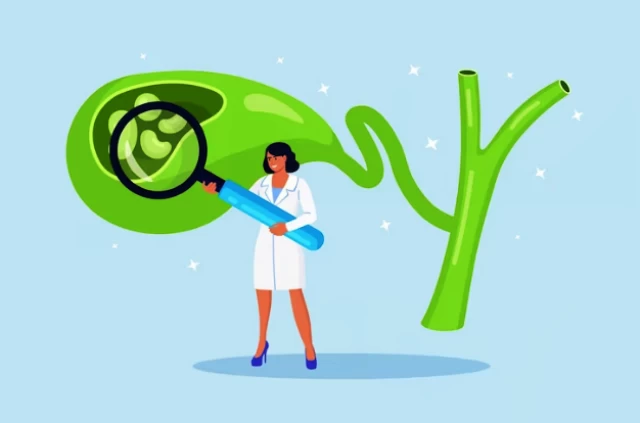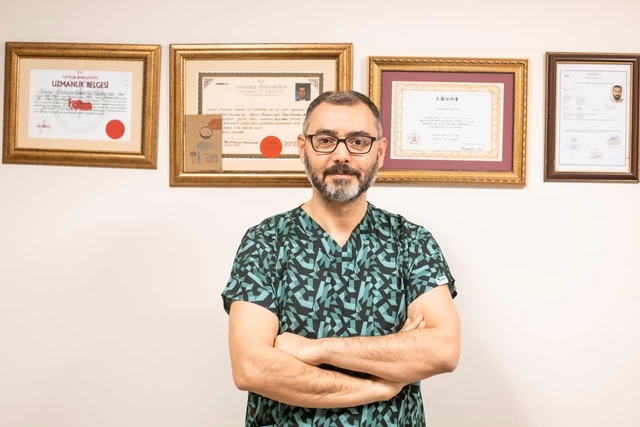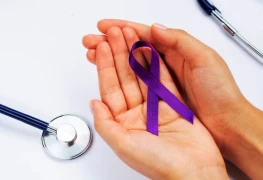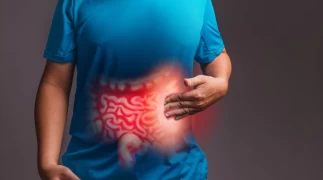
Gallstones: Causes, Diagnosis, and Treatment
- Gallstones: Causes, Diagnosis, and Treatment
- Causes of Gallstone Formation:
- Symptoms of Gallstones:
- Diagnosis of Gallstones:
- Treatment Protocol for Gallstones:
- Preventing Gallstone Formation:
Gallstones typically form in the gallbladder as a result of the accumulation of substances such as cholesterol, bilirubin, and calcium. Over time, these stones can grow, blocking the bile ducts and leading to serious health issues. This article provides general information about the causes, diagnosis, and treatment of gallstones.
Causes of Gallstone Formation:
The primary cause of gallstone formation is usually the accumulation of cholesterol. Cholesterol can become insoluble in the gallbladder, transforming into stones. Other factors include genetic predisposition, obesity, rapid weight loss, pregnancy, diabetes, certain medications, and liver diseases, all of which contribute to the formation of gallstones.
Symptoms of Gallstones:
Gallstones often do not show symptoms, but when they lead to the obstruction of the gallbladder or bile ducts, symptoms may arise. Symptoms indicating the presence of gallstones include pain in the upper right abdomen, nausea, vomiting, jaundice, gas, and digestive problems.

Diagnosis of Gallstones:
The diagnosis of gallstones is typically based on symptoms, the patient's medical history, and imaging tests. Common methods used for diagnosing gallstones include:
- Patient Complaints and Medical History: Gallstones are often associated with symptoms such as abdominal pain, nausea, vomiting, and jaundice. The patient's medical history, family history, and lifestyle are also evaluated.
- Physical Examination: The patient's abdomen is examined, and potential symptoms are investigated. Sensitivity or swelling in the gallbladder area is checked.
- Blood Tests: Blood tests can be used to assess problems in the bile ducts or liver. Parameters such as bilirubin levels and liver enzymes are examined.
- Imaging Tests:
- Ultrasonography: The most commonly used method, providing images of stones in the gallbladder and blockages in the bile ducts.
- Computed Tomography (CT): Provides detailed images used to evaluate gallstones and possible complications.
- Magnetic Resonance Cholangiopancreatography (MRCP): Used to obtain detailed images of the bile ducts.
- Endoscopic Retrograde Cholangiopancreatography (ERCP): Reaches the bile ducts using endoscopy and can be used to remove stones.
Gallstones are typically diagnosed through a combination of these tests to ensure an accurate diagnosis and create an appropriate treatment and management plan.
Treatment Protocol for Gallstones:
The treatment protocol for gallstones varies depending on factors such as the size and type of stones, the patient's overall health, and the severity of symptoms.
- Observation: Small, asymptomatic gallstones often do not require treatment and are simply monitored through regular health check-ups and imaging tests.
- Diet and Lifestyle Changes: Adopting a healthy diet, maintaining weight control, regular exercise, and adequate water intake can prevent gallstone formation or alleviate symptoms.
- Medication: Medications that may help dissolve cholesterol stones can be considered. However, this treatment is often not suitable for long-term use and may have limited effectiveness.
- Surgical Treatment: Symptomatic or complication-causing gallstones typically require surgical intervention. The most common surgical method is laparoscopic cholecystectomy, the removal of the gallbladder. Stones that have fallen into the bile duct may need to be initially removed through Endoscopic Retrograde Cholangiopancreatography (ERCP). The choice of treatment depends on the individual's specific condition and the characteristics of the stones.
Preventing Gallstone Formation:
To prevent gallstones, adopting a healthy lifestyle is crucial. This includes maintaining a balanced diet, controlling weight, engaging in regular exercise, and ensuring adequate water consumption. Additionally, individuals with a family history of gallstones are advised to undergo regular health check-ups.

Assoc. Prof. Dr. İlhan Karabıçak
General Surgery Specialist





